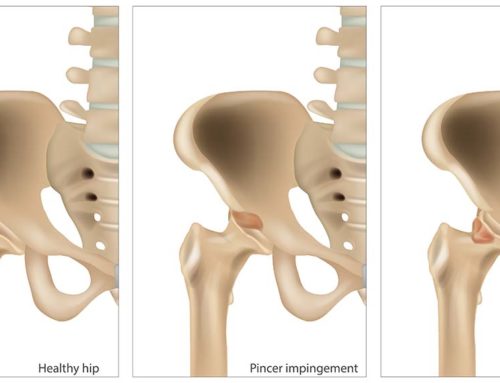Do I Need Surgery for My Injury?
This is a question we get asked quite often at our clinic. It’s not always a straight-forward question as there are many factors to consider. Every diagnosed condition has a different list of management options. The first step in the process is getting a diagnosis before we even consider answering the question of whether or not someone might be a surgical candidate.
Start with an Examination
Every initial visit at Burlington Sports Therapy starts with a history and examination. The process of planning a treatment approach through the history and physical examination is far too broad a topic to cover in a blog post. For example, some important considerations are what treatments the person has already attempted, what are their beliefs about their recovery and injury, how long have they been injured, what tissues are involved and how has this injury impacted their life? Again, this list can be quite exhaustive, and every patient has a different story. In addition to these factors, a practitioner will take into consideration the best evidence for the management of this diagnosis, the practitioner’s opinion based on their clinical experience with this diagnosis and the patient’s preference on how they want to manage their condition. So, it’s not always straight-forward, simply based on a diagnosis alone.
Consider Treatment Options
A good practitioner will provide a list of treatment options based on the above information. This list should not necessarily be limited to what is offered by that practitioner but rather a “brainstorming” list as to what treatment options can be suitable for the diagnosis. As mentioned above, this list should be run through a filter of best evidence, practitioner experience and patient preference, but it should always be “ranked” from least invasive to most invasive.
As you may have guessed, surgery is usually at the end of this list as it is often the most invasive treatment. Although surgery is definitely indicated for many conditions, there is always some element of risk, even with the most routine procedures.
Start with Less Invasive Options
So, if we have the choice, we usually start with the least invasive option. For the majority of musculoskeletal conditions, this means starting at a clinic like Burlington Sports Therapy (which offers chiropractic, physiotherapy, massage therapy and athletic therapy). The term “conservative management” is often used in musculoskeletal rehabilitation and usually refers to these treatment types. Should these conservative treatment options fail, we would then usually consider medical management. The more conservative side of medical management may refer to injections and prescription medications. Should these also fail to improve a person’s condition, we then, unfortunately, find ourselves further down the list of possible treatment options and a surgical consultation becomes more relevant.
So, if we’re asked, “Do I need surgery?” you can see that there are many steps to take before we can answer appropriately. Some conditions are not amenable to conservative treatment. Usually, however, if a patient is able to come to our clinic (and their injury is not an emergency), then there is some level of conservative management we can attempt.
Conditions that Require Surgery
Despite all of the above, if you’re still really curious about what conditions are often surgical, it might be safe to say that surgery at least becomes a consideration for severe knee and hip arthritis (joint replacements), certain fractures, labral tears in the hip and shoulder, shoulder dislocations, some Achilles tendon ruptures, various tendon full ruptures and complete ACL ruptures, to name a few. Some common conditions that many people think should be surgical but usually aren’t include disc herniations in the lower back (sciatica), whiplash injuries, ankle sprains, partial ligament tears in the knee such as MCL or ACL tears, carpal tunnel syndrome and rotator cuff tears that aren’t complete and don’t have tissue retraction. Again, there are many exceptions to these examples. Not sure what some of these exceptions might be? Need some help understanding what your treatment options are? Give us a call at Burlington Sports Therapy…we can help you!
By Dr. Kevin McIntyre – Clinic Director, Burlington Sports Therapy.








